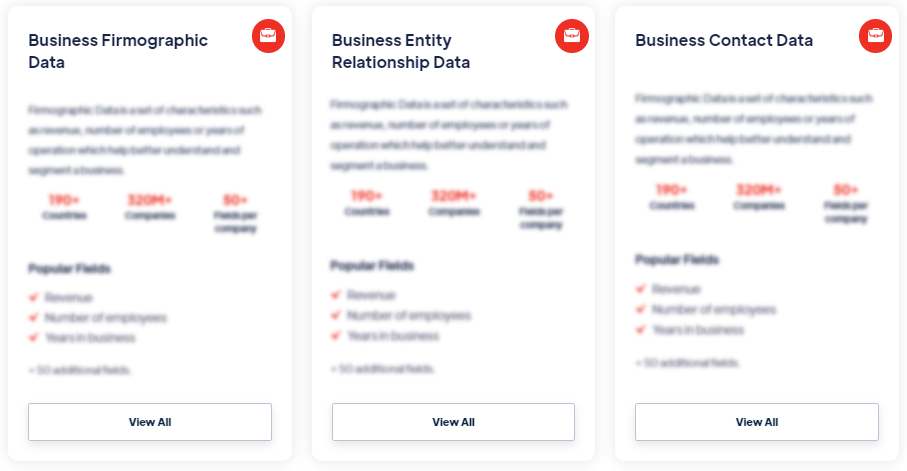Best
Property Owner Data
Products
Property Owner Data refers to information and details about individuals or entities who own or have legal ownership rights over a property. It includes data such as property owner names, contact information, property addresses, ownership history, property size and characteristics, and related property records. Read more
Our Data Integrations


Request Data Sample for
Property Owner Data

Browse the Data Marketplace

Frequently Asked Questions
1. What is Property Owner Data?
Property
Owner Data refers to information and details about individuals
or entities who own or have legal ownership rights over a
property. It includes data such as property owner names, contact
information, property addresses, ownership history, property
size and characteristics, and related property records.
2. How is Property Owner Data collected?
Property Owner Data is collected from various sources,
including public records, property tax records, property deeds,
title registries, government databases, and real estate
listings. These sources provide information on property
ownership, transfers, and other relevant details. Data
collection methods may also involve data enrichment services,
data aggregators, and data providers specializing in
property-related information.
3. What information does Property Owner Data include?
Property Owner Data typically includes the names of property
owners, their contact details (such as mailing addresses, phone
numbers, and email addresses), property addresses, property tax
information, ownership history, property characteristics (e.g.,
number of bedrooms, square footage), and any associated liens or
mortgages. It may also include additional information on
property owners, such as demographics, occupation, or property
ownership portfolio.
4. How is Property Owner Data used?
Property Owner Data is used by various entities and
professionals, including real estate agents, property managers,
investors, insurers, researchers, and marketers. It helps in
identifying property owners, contacting them for potential sales
or rental opportunities, conducting market research, verifying
property ownership, assessing property values, analyzing
ownership patterns, and facilitating property-related
transactions and services.
5. What are the challenges in working with Property Owner
Data?
Working with Property Owner Data presents challenges related to
data accuracy, data privacy regulations, data availability, and
data quality. Property ownership information may vary across
different sources, and keeping the data up-to-date can be a
challenge. Compliance with data protection and privacy laws,
such as GDPR or CCPA, is also crucial when handling property
owner data.
6. How is Property Owner Data analyzed?
Property Owner Data can be analyzed to gain insights into
ownership patterns, property market trends, and owner
demographics. Analysis may involve segmentation based on
property types, geographic regions, or property owner profiles.
Data can be further analyzed using statistical techniques, data
visualization, and data mining methods to identify patterns,
correlations, and market trends.
7. What are the benefits of using Property Owner Data?
Using Property Owner Data offers several benefits. Real estate
professionals can target potential buyers or sellers, customize
marketing strategies, and understand property ownership dynamics
in specific areas. Property managers can efficiently communicate
with owners and handle property-related matters. Investors can
assess property ownership patterns and make informed investment
decisions. Overall, Property Owner Data provides valuable
insights for various stakeholders in the real estate industry.
â€
